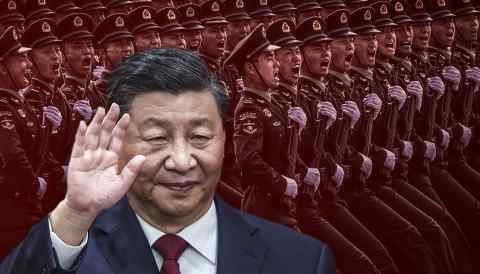
Hello from the Nikkei Asia newsroom. The Golden Week holiday season in Japan is around the corner, but for college seniors, it is the peak season for job hunting. The hiring process is becoming more diverse these days, but companies still rely heavily on new graduates to fill labor needs. Thus, students in dark-blue suits are a familiar sight at this time of year all over Tokyo.
From what I hear, however, this seems to be coming earlier every year as more and more companies try to secure better talent faster. Some students even receive job offers before the summer break of their junior year. That might be good news to those who want to lock in a place to work sooner rather than later, but it is rather unfortunate that so much of campus life has to be devoted to job hunting.
"I took online classes for the first three years and went to campus for the last year, and was able to spend a fulfilling four years learning many new things," said Princess Aiko, the eldest daughter of the emperor, when she graduated from Gakushuin University this year. Her remark illustrates well how the pandemic has affected today's young generation and crippled their campus lives. She has started working at the Japanese Red Cross Society.
This generation, also known as Generation Z globally, has a different way of thinking about work than those in management positions, accustomed to lifelong employment and seniority-based pay systems. The difference is so great that it could even be called revolutionary. With a worsening labor shortage set against the backdrop of a declining birthrate, this week's Big Story follows the front lines of how Japanese companies are trying to attract fresh talent from this generation.
Although all the data suggests that Japan as a whole is experiencing a severe labor shortage, the situation is said to be more severe among small and medium-size companies. Big corporations are, however, still in a buyer's market, with more applicants than openings. Our Business Spotlight in this week's magazine looks at the small players in Japan's automotive industry.
Despite their size, they play a large role in Japan's EV battery supply chain, indirectly supporting companies such as Toyota Motor and Tesla. As global competition among EV companies intensifies, how they secure their supply chains will become critical. Due to the unique nature of these supply networks, which are made up of small companies, restructuring or streamlining them will not be easy, the story explains.
Japanese companies are not alone in the war for talent. Rather, the rest of the world as well is in a fierce race to recruit the best and brightest across borders.
Our Asia Insight takes a deep dive into the economic challenges facing Singapore's next prime minister, Lawrence Wong, including how to compete as a regional financial hub and remain one of the world's fastest-growing economies. With a birthrate lower than Japan's, stopping the brain drain and attracting overseas talent will be top priorities, as multinational companies have been moving their regional headquarters out of the country.
From the Life & Arts section of this week's magazine, the Tea Leaves column talks about how the improved relationship between Thailand and Saudi Arabia since 2022 has brought about a change in the Thai street economy scene. Just as businesses are built on employees, nation-to-nation relations could be measured by person-to-person relations on the street. The reason Thailand remains a tourist magnet is its openness and adaptability, the piece argues.
As I mentioned at the beginning of this newsletter, next Friday is in the middle of Golden Week and there will be no newsletter from me, as we will not be publishing the magazine.
Wishing you a wonderful weekend!
Shin Nakayama
Editor-in-chief, Nikkei Asia
Follow me on X (formerly Twitter) @ShinNakayama_NA










